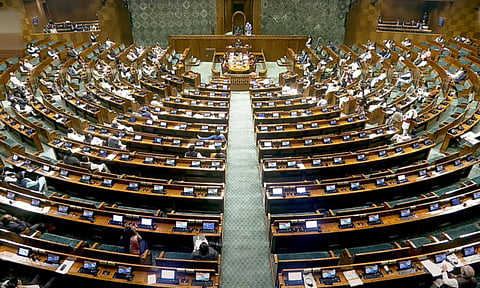

The government has finally come up with a comprehensive Bill that promises to address many of the persistent problems faced by Indian sports. It is keen on getting the National Sports Governance Bill, 2025, passed during the ongoing monsoon session of parliament, while the Opposition is trying to get the government to discuss the Bihar electoral rolls issue. Using the stalling of the Houses as a pretext, the government may press for the passage of Bills without much discussion. In the previous term, too, the NDA government was criticised for the way it got Bills passed – about 35 per cent – with discussions of less than an hour.
Indian sports have been plagued with problems and controversies – from harassment, discrimination, and exploitation of players to unethical practices like doping, illegal betting, and match fixing. The previous UPA government tried to fix some of the problems through the National Sports Development Code (2011), but it had neither the teeth nor the muscle – the regulatory mechanisms and enforcing powers. Consequently, there was endless litigation.
The proposed Bill envisages the creation of national sports governing bodies with proper rules and regulations, a code of conduct for all stakeholders, and a grievance redressal mechanism. The harassment case relating to the former chieftain of the Wrestling Federation of India, Brij Bhushan Sharan Singh, highlighted the lack of accountability of political strongmen and grievance redressal mechanism in sports bodies.
Political leaders or their kin calling the shots in a sports organisation undermines professionalism and autonomy, besides potential conflict of interest. It was there when the Congress party was in power, but it also continued under successive NDA governments. One of the most controversial and hotly debated decisions related to the appointment of a powerful minister’s son to run the influential national governing body of cricket. The Bill has certain provisions relating to eligibility and tenure of sports administrators.
Even before getting its house in order, India made an aggressive bid to host the 2036 Olympics, besides having other plans to bid for some high-profile international events to bolster its image as “a major global power”. But the International Olympic Committee (IOC) gave India a reality check when it highlighted sports governance issues, rampant doping, and the country’s not-so-impressive performance in the Olympics. In fact, last year, the IOC suspended payments to the Indian Olympic Association (IOA) after its internal disputes and financial mismanagement issues reached the IOC’s ears.
Western countries which achieved tremendous success in sports share some common attributes. Besides creating the required sports infrastructure, such as stadiums and investing in training at all levels, their sports governing bodies are characterised by professionalism, transparency, financial management, and commitment to the welfare of players. Indian organisations, on the other hand, are fraught with bitter feuds and internecine conflicts, political interference, sportspersons being pushed to the margins when it comes to management, red tape, mismanagement, and corruption.
Campaigns like Khelo India, Fit India, the National Sports Policy, 2025, and the latest Bill are big steps in the right direction but as it happens with many other well-intentioned initiatives and laws, very little gets translated into action that yields tangible results. Hosting the Olympics or becoming one of the top 10 sporting nations in over a decade may now sound more like a flight of fancy than a realistic, achievable goal with a clear roadmap to success.